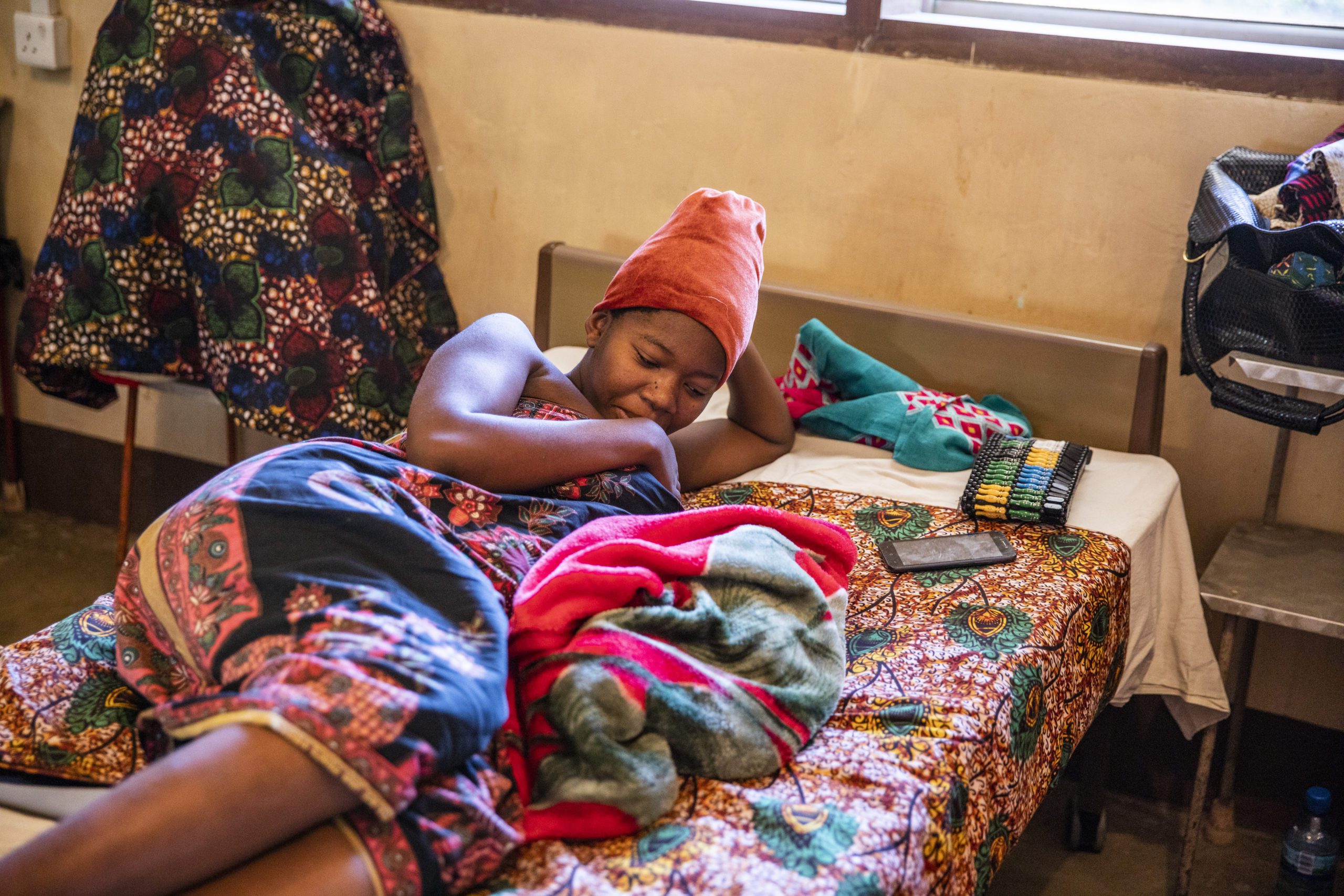Über zwei Jahre lang hat Rashida in Tansania jeden Cent zur Seite gelegt und auf diesen Tag gewartet. Noch bevor die Sonne aufgeht und der Rest der Familie aufwachen wird, zieht sie sich an, frühstückt ein Schälchen Reis und macht sich auf den Weg. Über vier Stunden Fußmarsch über steinigen Boden liegen vor ihr. Aber sie ist zeitig dran, sodass sie vor der großen Mittagshitze ankommen wird.
Zur selben Zeit in Deutschland sieht Martina auf den Wecker. Zwei Stunden kann sie noch schlafen, bevor sie los muss. Ein bisschen nervt es sie, dass sie heute diesen Termin hat. ‚Aber was sein muss, muss sein‘, denkt sie und dreht sich nochmal im Bett um.
Nachdem Rashida schon zwei Stunden gelaufen ist, macht sie eine kleine Pause, setzt sich auf einen Stein und trinkt ein Schluck Wasser aus der kleinen Flasche, die sie eingesteckt hat. Jetzt steht auch Martina auf. Wäscht sich, frühstückt, blättert ein wenig in der Zeitung und fährt dann los.
Beide Frauen sind Ende dreißig. Beide haben heute einen Weg von ca. 25 km zu ihrem Termin. Beide haben den gleichen Termin. Beide besuchen einen Gynäkologen zur wichtigen Gebärmutterhalskrebsvorsorge. Dennoch könnten die Unterschiede kaum größer sein: Während für Rashida die Untersuchung das erste Mal ist, ist sie für Martina eine jährliche Routine. Kosten und Logistik spielen für die Deutsche keine Rolle: Der Arzt ist schnell zu erreichen, die Kosten deckt die Krankenkasse. Der Termin ist mit keinerlei Risiko verbunden. Rashida hingegen hat sich lange gegen die Untersuchung gewehrt: zu groß war die Angst vor der Ungewissheit, was auf sie zukommt. Der lange, beschwerliche Weg und natürlich die hohe finanzielle Belastung die auf die Familie zukommt, wenn sie diese Untersuchung macht. Dabei hat Rashida noch großes Glück: Ihr Mann weiß von der Wichtigkeit des Besuches, und nachdem er auch noch Beschwerden im Unterlaib seiner Frau bemerkte, schaffte er es endlich sie zu dem Termin zu überreden. Das ist durchaus nicht die Normalität in ländlichen Regionen wie hier in Tansania: in den meisten Fällen besteht kein Verständnis von Mann und Gesellschaft für solche Untersuchungen; im Gegenteil gerade gynäkologische Probleme werden oftmals aus Scham verschwiegen.
Nach einer Stunde ist Martina wieder zuhause. Alles war gut gelaufen. Erst wenn sie sich ihr Abendbrot zubereitet, wird auch Rashida langsam in ihre Hütte zu ihrer Familie zurückkommen. Aber auch sie wird froh sein, denn nun hat sie die Gewissheit, dass ihre Beschwerden nicht bedrohlich sind.
Heute am Weltgesundheitstag, sollten wir uns immer wieder darüber klarwerden, welches unheimlich große Glück wir mit unserer Gesundheitsversorgung haben: 45 Ärzte:innen pro 10 000 Einwohner gibt es in Deutschland – nicht einmal ein Zehntel davon hat ein afrikanischer Bürger zur Verfügung. Von der medizinischen Qualität und Hygiene ganz zu schweigen. Es sollte daher auch im Sinne von uns allen sein, unser Glück ein wenig mit den Menschen zu teilen, die dieses nicht haben. Denn wir wissen ja alle: ‚Geteiltes Glück ist doppeltes Glück‘!



